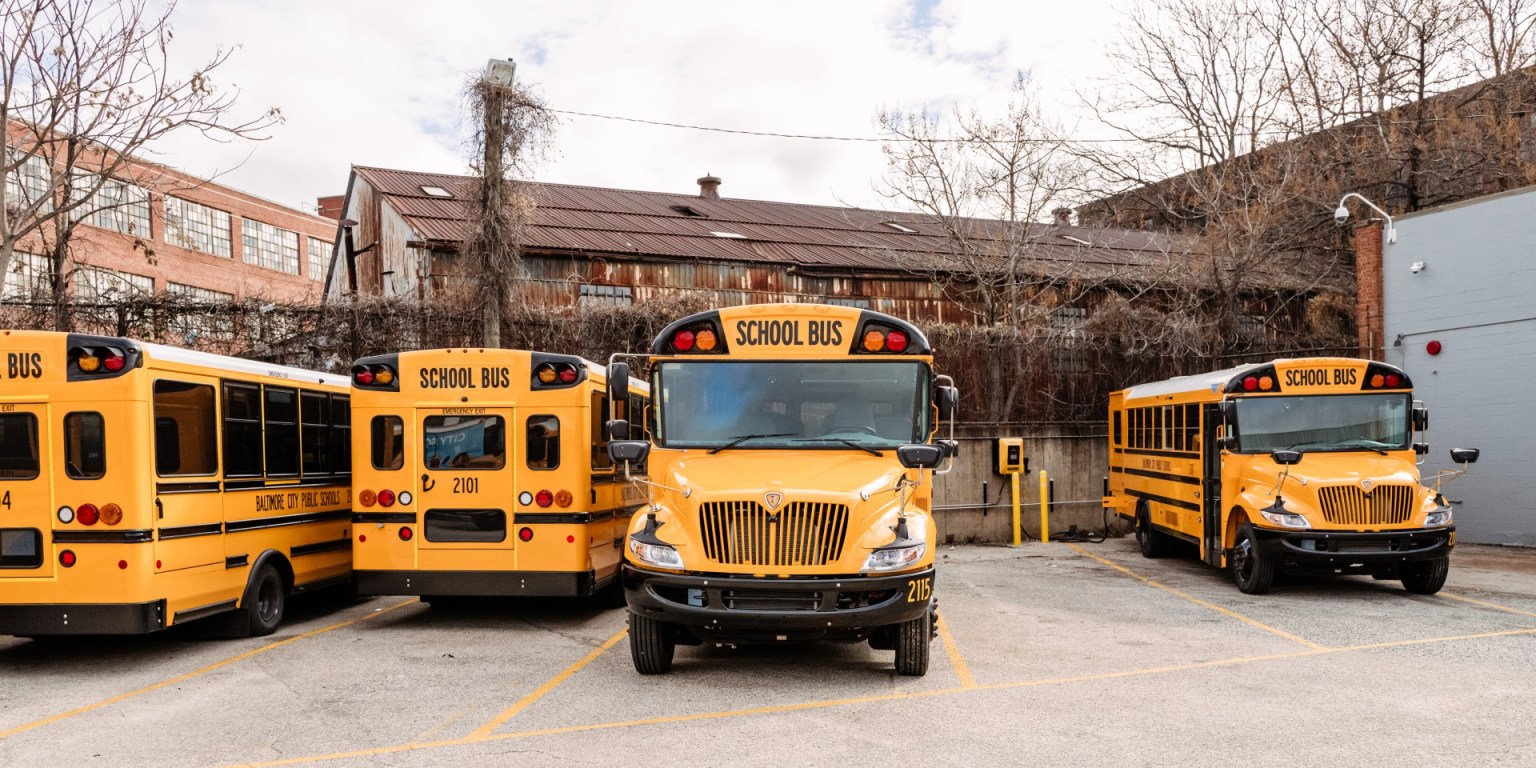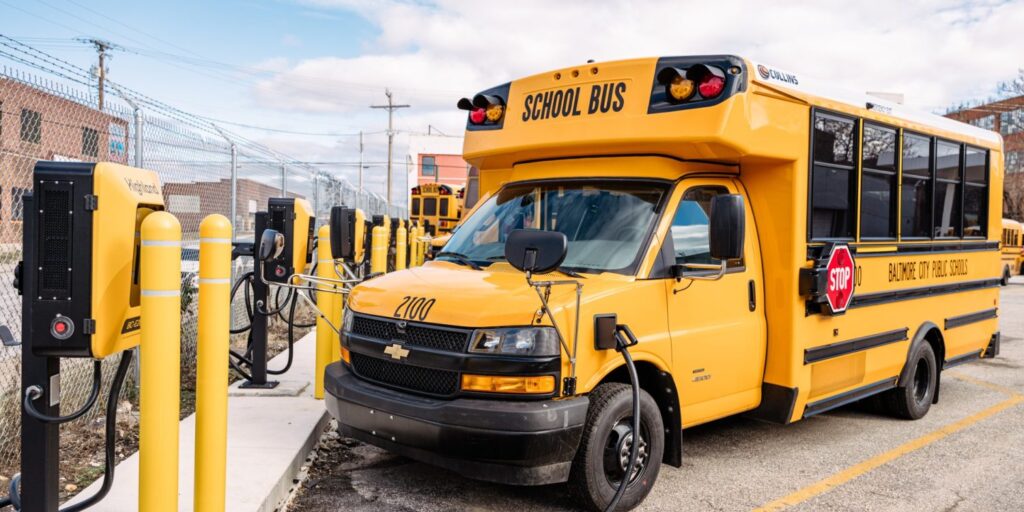Baltimore City Public Schools has introduced 25 electric school buses, marking Maryland’s second-largest electric school bus fleet, following Montgomery County Public Schools. The initiative, funded by the EPA’s Clean School Bus Program with over $9.4 million, aims to enhance sustainability and address environmental concerns, particularly in marginalized communities.
The electric buses, part of an ambitious effort to create a cleaner and quieter transportation system, are set to serve an initial group of approximately 350 students daily, including those with special education needs. The funding, allocated in Round 1 of the EPA program, emphasizes deploying eco-friendly solutions in communities that need them the most.
See also: Blue Bird Secures Record Order for Electric School Buses from Los Angeles Unified School District
Baltimore City Schools collaborated with Highland Fleets, a leading school bus fleet electrification-as-a-service provider, for guidance through the EPA funding application and the entire procurement process. Highland Fleets, known for its commitment to sustainable transportation solutions, had previously announced plans to install 25 chargers and deploy 20 Type C electric school buses from IC Bus, along with 5 Type A buses from Collins Bus.

The IC Bus electric Type Cs in use in Baltimore are equipped with 210 kWh powertrains, providing an impressive range of 135 miles. On the other hand, Collins’ Type A buses are Ford E-Transits featuring 68 kWh powertrains with a range of 100 miles.
The transition to this electric fleet is slated for the 2024-25 school year, gradually replacing diesel buses. Some of the electric school buses are set to hit the roads immediately, contributing to the reduction of 207 tons of carbon dioxide emissions annually.
See also: GreenPower Unveils First Electric School Buses from West Virginia Factory
During the ribbon-cutting ceremony, Sonja Santelises, CEO of Baltimore City Schools, emphasized the positive impact of the electric buses, stating, “They’ll be quieter rides and better for the environment. And I think, most importantly, it really will contribute to the health of our young people. Baltimore City schools [have] a disproportionate amount of students who suffer from ailments like asthma.”
This initiative holds significant importance for Baltimore City, where asthma rates among students are higher than anywhere else in Maryland, affecting approximately 1 in 3 students. The introduction of the electric school bus fleet not only addresses environmental concerns but also underscores a commitment to the well-being of the community’s youth.
